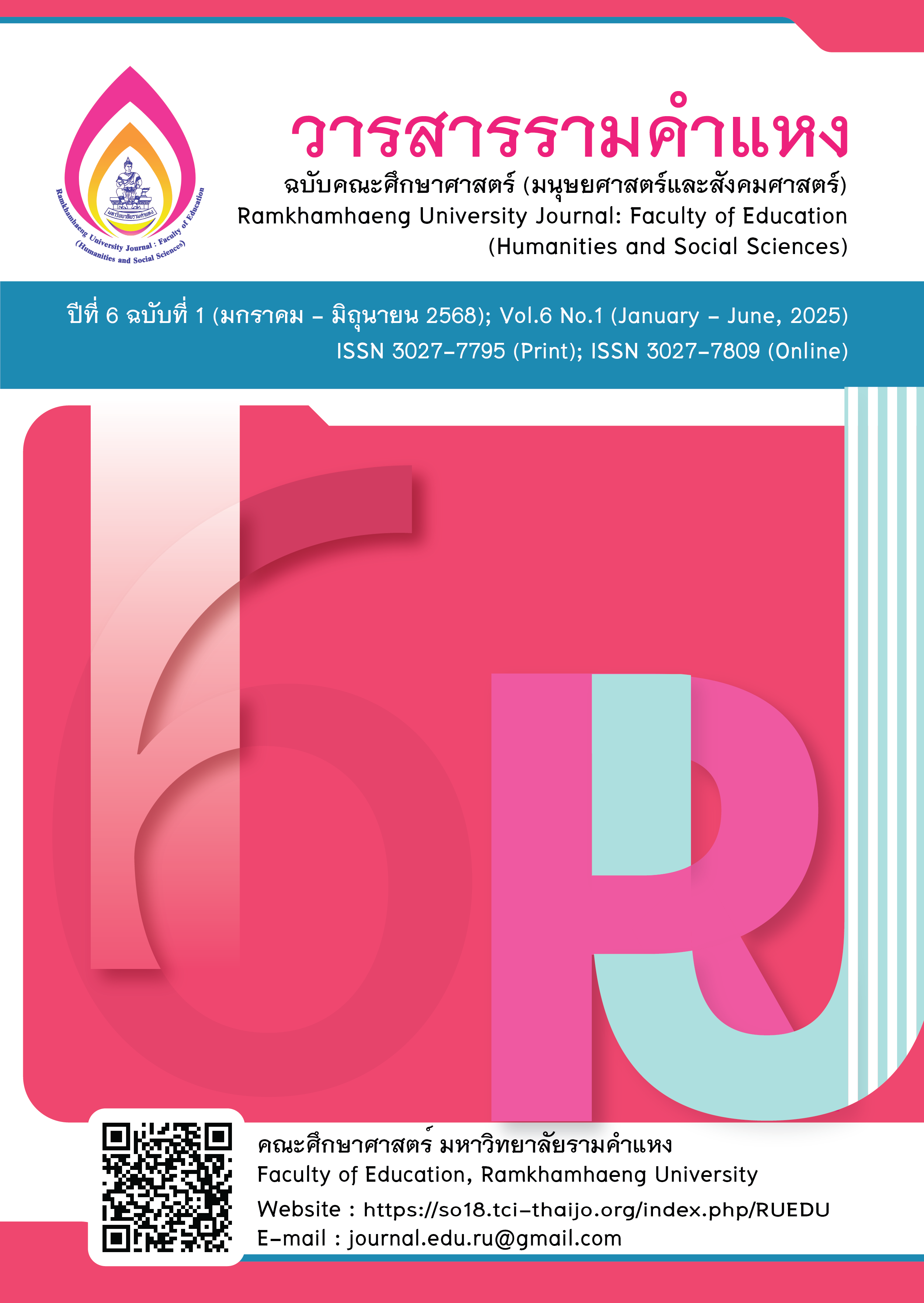Academic Burnout among Undergraduate Psychology Students in the Context of the COVID-19 Pandemic
Main Article Content
Abstract
This qualitative narrative research was conducted to explore the multifaceted phenomenon of academic burnout. The study involved three distinct groups of key informants: the first group comprised 11 students deemed to be at risk of experiencing academic burnout, who were subsequently divided into three separate online group discussions. The second group consisted of five lecturers affiliated with the psychology bachelor's program, while the third group included five experts in the field of psychology and mental health. Online in-depth interviews were conducted with the lecturers and experts, and thematic analysis was employed as the method for data analysis. The findings revealed that academic burnout is a mental health condition characterized by three dimensions of consequences, encompassing mental and emotional repercussions, physical manifestations, and social implications. As a recommendation, educational administrators are encouraged to enhance awareness among both staff and students and implement appropriate strategies for addressing academic burnout.
Downloads
Article Details

This work is licensed under a Creative Commons Attribution-NonCommercial-NoDerivatives 4.0 International License.
ผู้ส่งบทความ (และคณะผู้วิจัยทุกคน) ตระหนักและปฎิบัติตามจริยธรรมการวิจัยอย่างเคร่งครัด ทั้งนี้บทความ เนื้อหา ข้อมูล ข้อความ ภาพ ตาราง แผนภาพ แผนผัง หรือข้อคิดเห็นใดๆ ที่ปรากฎในบทความ เป็นความคิดเห็นและความรับผิดชอบของผู้ส่งบทความ กองบรรณาธิการไม่จำเป็นต้องเห็นตามเสมอไป และไม่มีส่วนรับผิดชอบใดๆ โดยถือเป็นความรับผิดของของเจ้าของบทความเพียงผู้เดียว
References
Aghajani L. G., Mahdi N. S., Sami, N., Khakpour, S., & Ghorbani Y. B. (2021). The prevalence of educational burnout, depression, anxiety, and stress among medical students of the Islamic Azad University in Tehran, Iran. BMC Medical Education, 21(1), 1-8.
Atalayin, C., Balkis, M., Tezel, H., Onal, B., & Kayrak, G. (2015). The prevalence and consequences of burnout on a group of preclinical dental students. European Journal of Dentistry, 9(3), 356-363.
Fernández-Castillo, A. (2021). State-anxiety and academic burnout regarding university access selective examinations in Spain during and after the COVID-19 lockdown. Frontiers in Psychology, 12, 621863
Koutsimani, P., Montgomery, A., & Georganta, K. (2019). The relationship between burnout, depression, and anxiety: A systematic review and meta-analysis. Frontiers in Psychology, 10, 284.
Lin, S. H., & Huang, Y. C. (2014). Life stress and academic burnout. Active Learning in Higher Education, 15(1), 77-90.
Madigan, D. J., & Curran, T. (20 21). Does burnout affect academic achievement: A meta-analysis of over 100,000 students. Educational Psychology Review, 33, 387–405.
Maslach, C., & Jackson, S. E. (1981). The measurement of experienced burnout. Journal of organizational behavior, 2(2), 99-113.
May, R. W., Seibert, G. S., Sanchez-Gonzalez, M. A., & Fincham, F. D. (2016). Physiology of school burnout in medical students: Hemodynamic and autonomic functioning. Burnout Research, 3(3), 63-68.
Pamungkas, H. P., & Nurlaili, E. I. (2021, December). Academic burnout among university students during COVID-19 outbreak. In International Joint Conference on Arts and Humanities 2021 (IJCAH 2021) (pp. 1163-1169). Atlantis Press.
Pirun Chinachot & Thirawat Chantuk. (2015). Propose policy to develop teaching and learning process with knowledge management to reduce study-related burnout of students. Veridian E-Journal, Silpakorn University (Humanities, Social Sciences and arts), 8(2), 864-876. (in Thai)
Rahmatpour, P., Chehrzad, M., Ghanbari, A., & Sadat-Ebrahimi, S. R. (2019). Academic burnout as an educational complication and promotion barrier among undergraduate students: A cross-sectional study. Journal of Education and Health Promotion, 8, 201.
Tadesse, S., & Muluye, W. (2020) The impact of COVID-19 pandemic on education system in developing countries: A review. Open Journal of Social Sciences, 8, 159-170
Williams, C. J., Dziurawiec, S., & Heritage, B. (2018). More pain than gain: Effort–reward imbalance, burnout, and withdrawal intentions within a university student population. Journal of Educational Psychology, 110(3), 378.
Zhang, C., Shi, L., Tian, T., Zhou, Z., Peng, X., Shen, Y., Li, Y., & Ou, J. (2022). Associations between academic stress and depressive symptoms mediated by anxiety symptoms and hopelessness among Chinese college students. Psychology Research and Behavior Management, 15, 547.


